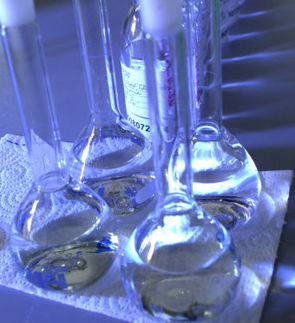End of the CLP transitional period
Advertisement
The transition regulation that allows hazardous substances to be classified and labelled according to the old EU preparations directive remains valid for only another twelve months. For importers and formulators of chemical products such as cleaners, adhesives, paints and lubricants, it is now high time to switch their products over to the new classifications and labelling, DEKRA advises.
The transitional period for the conversion to the new CLP (Classification, Labelling, Packaging) regulation (EC regulation no. 1272/2008) will end on 1 June 2015. “Companies that have not yet switched their product range to the labelling based on the CLP regulation should urgently become active now,” advises Jochen Dettke, expert in chemicals law at DEKRA. In a first step, the classification of the products has to be determined from the formulation in accordance with the rules of the CLP regulation. A simple conversion of the existing product classification based on the preparations directive is not advisable – it frequently leads to incorrect results. In some cases, additional laboratory tests also have to be carried out as even the underlying methods have changed.
The classification then produces the labelling with pictographs and signal words as well as the H (Hazards) and P (Precautions) phrases. This information is documented on the safety data sheet and the label. In the majority of cases, more pictographs are required based on the CLP regulation than before, with the result that it may be necessary to redesign the label. The packaging plant must therefore take into consideration in its planning the time frame for the production of new packaging.
The classification of the product may in some cases turn out to be stricter than before. For example, the irritant effect on the eyes will have to be seen more frequently on the label than before. Formulators should therefore check – if necessary with expert support – whether the classification as “corrosive” can be avoided by adjusting the formulation. The same applies for the acute toxicity classification.
DEKRA is providing support for importers and formulators in these tasks.
Most read news
Other news from the department politics & laws

Get the chemical industry in your inbox
By submitting this form you agree that LUMITOS AG will send you the newsletter(s) selected above by email. Your data will not be passed on to third parties. Your data will be stored and processed in accordance with our data protection regulations. LUMITOS may contact you by email for the purpose of advertising or market and opinion surveys. You can revoke your consent at any time without giving reasons to LUMITOS AG, Ernst-Augustin-Str. 2, 12489 Berlin, Germany or by e-mail at revoke@lumitos.com with effect for the future. In addition, each email contains a link to unsubscribe from the corresponding newsletter.
































































